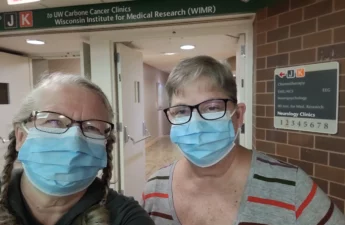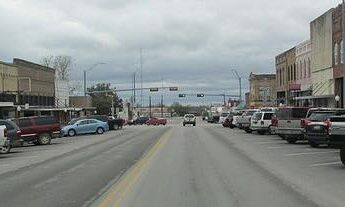Category: Rural Hospitals
Washington Hospitals warn Legislature’s budget plans would deal them a financial hit
Washington hospitals lost $1.74 billion in 2023.
Rural Pharmacies Are Transforming to Take on More Healthcare Responsibilities
As hospitals in rural communities close, pharmacists are changing their workflow and business models to focus on providing more services.
Retired Doctors Step Up in the Face of a Rural Health Care Crisis
By Pat Raia, The Daily Yonder March 11, 2025 Four years ago, family practitioner Dr. Jeff Chappell retired from his post as medical director of the Wayne Community Health Center in Bicknell, Utah. He was excited to undertake a new…
NIH funding cuts will hit red states, rural areas and underserved communities the hardest
The cuts will be detrimental to the entire country, they will disproportionately hurt states that traditionally have received very low levels of NIH funding, the majority of which are red states that supported Trump’s election to a second term. This is because such states lack resources to develop advanced research infrastructure necessary to compete nationally for NIH funding.
GOP Takes Aim at Medicaid, Putting Enrollees and Providers at Risk
At stake is coverage for roughly 79 million people enrolled in Medicaid and its related Children’s Health Insurance Program. So, too, is the financial health of thousands of hospitals and community health centers — and a huge revenue source to all states.
Study: Obstetrics Units in Rural Communities Declining
According to the researchers, the decline of obstetrics units in rural communities is contributing to rising maternal morbidity rates.
Economists: Rural Uninsured Rates Likely to Rise if ACA Premium Tax Credits Expire
For residents in rural communities across the country, those rising prices could mean not having access to health insurance anymore.
For Many Rural Women, Finding Maternity Care Outweighs Concerns About Abortion Access
A study that examined nearly 5,000 acute care hospitals found that by 2022, 52% of rural hospitals lacked obstetrics care after more than a decade of unit closures. The health implications of those closures for young women, the population most likely to need pregnancy care, and their babies can be significant. Research has shown that added distance between a patient and obstetric care increases the likelihood the baby will be admitted to a neonatal intensive care unit, or NICU.
Study: Rural residents more likely to struggle with medical debt
The researchers found that 11.5 percent of white rural residents said they had problems paying medical bills, and 7.6 percent were unable to pay them.
45 Degrees North: The Rural Cancer Commute
If you come from a rural area, you probably know someone who has had to make that kind of commute for treatment. Who has weighed the cost of gas, food and lodging away from home. Who has learned the back ways around a strange city to avoid road construction or rush hour congestion. Who packed an extra week’s worth of clothes, just in case.
‘Dismayed, but Not Surprised:’ Health Gap Between Urban and Rural America Is on the Rise
The dwindling of rural communities is a reality reflected across rural America, and it doesn’t bode well for the health of the residents of those communities: likely even poorer access to health care and all manner of services and amenities. Or for that of the community as a body: less voice in decisions made at the state and federal levels.
Report: Rural Women See Drops in Health and Reproductive Care
Differences in Medicaid coverage – whether it is in the 10 states that have yet to expand Medicaid, or the unwinding of Covid-19-based Medicaid coverage – has left millions of women either uninsured or with gaps in their health care coverage.
Rural Health Clinics with ‘Head-to-Toe and Womb-to-Tomb’ Care
Rural health clinics are safety net providers whose original mandate was primarily to increase access to care for those on Medicaid or Medicare. They provided primary care and perhaps a few other services. But the Rural Health Clinic program has evolved over the years, and some clinics, like Primary Care Centers of Eastern Kentucky, have expanded their roles quite considerably.
Struggling to Survive, the First Rural Hospitals Line Up for New Federal Lifeline
Facilities that convert to Rural Emergency Hospital status will get a 5% increase in Medicare payments as well as an average annual facility fee payment of about $3.2 million in exchange for giving up their expensive inpatient beds and focusing solely on emergency and outpatient care. Rural hospitals with no more than 50 beds that closed after the law passed on Dec. 27, 2020, are eligible to apply for the new payment model if they reopen.
Texas Town Tries a New Model for Saving Rural Health Care
The revamped facilities will transfer people who need inpatient care to full-service hospitals nearby. But for many rural communities, such conversions to fewer services will be a bitter pill to swallow.














